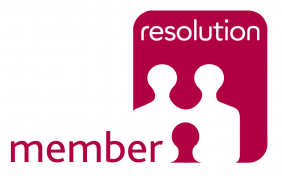Collaborative Law – In It Together
The divorce process has evolved quite significantly in recent years. No longer purely court-based, it now offers couples a range of options when it comes to reaching agreement about the terms on which they’ll separate and move on from one another.
Decisions about the division of assets, for example, used to be something that a judge would impose. This remains the case in some situations, but the availability of dispute resolution mechanisms such as collaborative law means that parties can have a much more hands-on influence over the terms of their divorce. It essentially enables people to determine their own settlement – something that is not only beneficial in the long run, but which can also be a far more constructive way of getting through the difficult process of divorce.
I’m not saying that the courtroom is never the right forum. In some cases, it is the best – and often only – way of two people achieving a suitable settlement. That is because if one or both parties will not agree to try dispute resolution, or if negotiations during dispute resolution break down, a Family judge will be the right person to step in and manage the situation. But, of course, that removes a significant degree of the parties’ control.
Control is a significant benefit of collaborative law. The process involves working with your former partner in order to agree the way forward. This usually requires a series of meetings during which each party will be accompanied by their solicitor (make sure they are a collaborative law specialist). The aim is to resolve the practicalities around separation – arrangements for money, property, other assets, children – in as constructive a way as possible. It’s essential that both parties are up for this; they’ll each need to cooperate fully, be prepared to be open and honest, and to compromise where necessary.
Some clients initially dismiss the idea of collaborative law. They don’t think that the sort of face-to-face discussions I describe could ever lead to any sort of positive outcome in their situation (such is the strength of bad feeling between them and their former partner). That is a really common perception, and one that occasionally plays out in practice. However, for the vast majority of clients, collaborative law is hugely successful.
It is accepted to be far less stressful than a courtroom showdown. It takes place in a normal room – an office, or a hired space in a hotel – so the surroundings are not as intimidating as a court. There are no wigs or robes. There is no unfamiliar etiquette. All in all, it should put parties at ease and enable them to have full and frank discussions (openness is a key element).
Guided by lawyers, the parties work through the issues between them. Clients have the comfort of knowing that their legal rights are continually being monitored and protected by their solicitor who sits alongside them throughout, so there is little chance of being outwitted or railroaded into an unfair deal. The lawyers also help keep things on track so that attention focuses on the things that need to be sorted out and time is not wasted by bringing up irrelevancies or by mud-slinging. It is an environment that very much promotes respect and good faith, and a concerted effort by everyone to wrap things up as quickly, thoroughly, fairly and harmoniously as possible.
It is also an approach that makes for a far speedier resolution than one offered by the court system. Meetings can be set up at short notice and an end date lined up at the outset. And, given that everything remains within the control of the parties, costs can be significantly lower, too.
What about the settlement that is reached? The great part about an agreement concluded via collaborative law is that it has the same effect as an order made by the court. Once the parties are happy with the terms, the agreement is formalised into a legally binding agreement. If either party fails to comply in some way, the agreement can be enforced through the courts.
As a Family solicitor and a collaborative law specialist, I regularly see the positive benefits that this form of dispute resolution has on clients and their wider families. Done well, collaborative law takes the heat out of a situation. It can diffuse tensions, open up conversations, and provide parties with a solid basis on which to move on with their lives.
This is especially important where children are involved. Parents need to be able to maintain as healthy a relationship as they can if their children’s best interests are to be served. By working through their divorce together to agree terms of separation, parties can heal wounds and lay strong foundations for the years ahead.
For advice on any aspect of separation or divorce, or to find out more about collaborative law, contact me at [email protected] or on 020 3811 2894.










